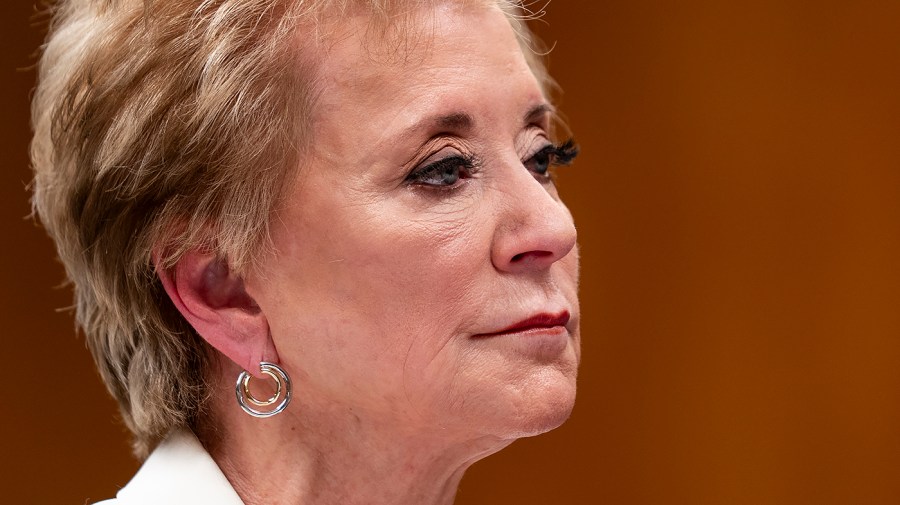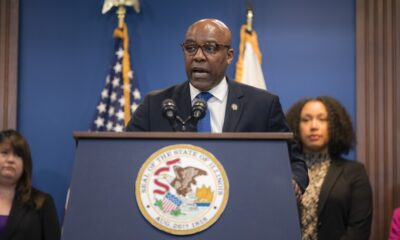Education
McMahon Addresses Concerns Over Federal Education Funding Changes

Education Secretary Linda McMahon has clarified misconceptions surrounding federal funding for education amid discussions of restructuring the U.S. Department of Education. On October 15, 2023, she addressed concerns that a potential wind-down of the department, as proposed by the Trump administration, would lead to significant losses in federal funding for states.
In a public statement, McMahon emphasized that the transition to a state-level governance model does not inherently mean a reduction in financial resources for education. She stated, “I think the misconception is that federal funding will go away if the Department of Education goes back more to the states. That is not the case.”
The debate centers on the role of federal oversight in education funding and whether states are equipped to manage these resources without federal support. Advocates of the changes argue that local control could lead to more tailored educational strategies that meet the specific needs of communities. Critics, however, warn that this could jeopardize equitable access to quality education across different regions.
McMahon pointed out that while some federal programs may be adjusted, the funding mechanisms in place can still provide substantial support to states. “The goal is to empower states, but that does not mean we will abandon our commitment to providing necessary funds for education,” she added.
As discussions continue, stakeholders in the education sector are closely monitoring developments. Many educators and administrators are advocating for clarity on how funding will be allocated if the department is restructured. The impact of these changes could be profound, potentially altering the landscape of public education across the country.
The U.S. Department of Education has historically played a significant role in ensuring equitable access to educational resources, distributing billions of dollars annually to support various programs. As McMahon and her team navigate this complex transition, they must balance the push for state autonomy with the imperative to maintain funding levels that support all students.
In the coming weeks, further discussions are expected as policymakers, educators, and advocacy groups weigh in on the implications of returning education governance to the states. The outcomes of these discussions could shape the future of educational funding and policy across the United States.
-

 Technology5 months ago
Technology5 months agoDiscover the Top 10 Calorie Counting Apps of 2025
-

 Technology3 weeks ago
Technology3 weeks agoOpenAI to Implement Age Verification for ChatGPT by December 2025
-

 Health3 months ago
Health3 months agoBella Hadid Shares Health Update After Treatment for Lyme Disease
-

 Health4 months ago
Health4 months agoAnalysts Project Stronger Growth for Apple’s iPhone 17 Lineup
-

 Health4 months ago
Health4 months agoErin Bates Shares Recovery Update Following Sepsis Complications
-

 Technology5 months ago
Technology5 months agoDiscover How to Reverse Image Search Using ChatGPT Effortlessly
-

 Technology3 months ago
Technology3 months agoElectric Moto Influencer Surronster Arrested in Tijuana
-

 Technology5 months ago
Technology5 months agoMeta Initiates $60B AI Data Center Expansion, Starting in Ohio
-

 Technology2 months ago
Technology2 months agoDiscover 2025’s Top GPUs for Exceptional 4K Gaming Performance
-

 Technology5 months ago
Technology5 months agoRecovering a Suspended TikTok Account: A Step-by-Step Guide
-

 Health5 months ago
Health5 months agoTested: Rab Firewall Mountain Jacket Survives Harsh Conditions
-

 Lifestyle5 months ago
Lifestyle5 months agoBelton Family Reunites After Daughter Survives Hill Country Floods




















